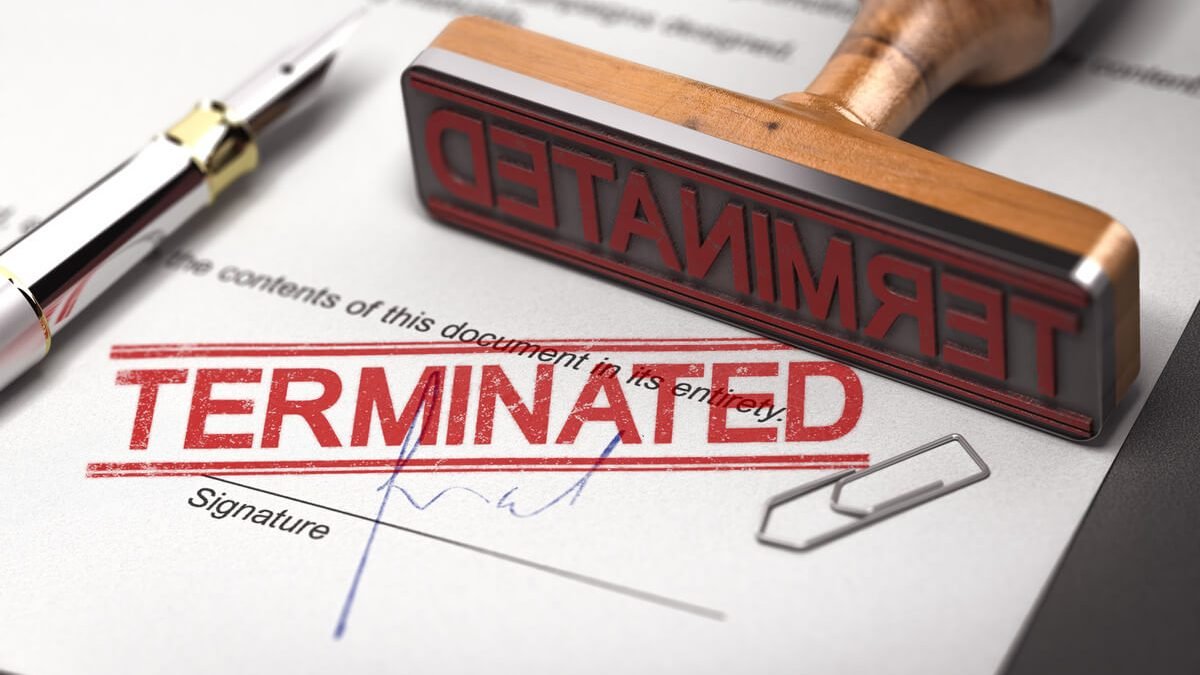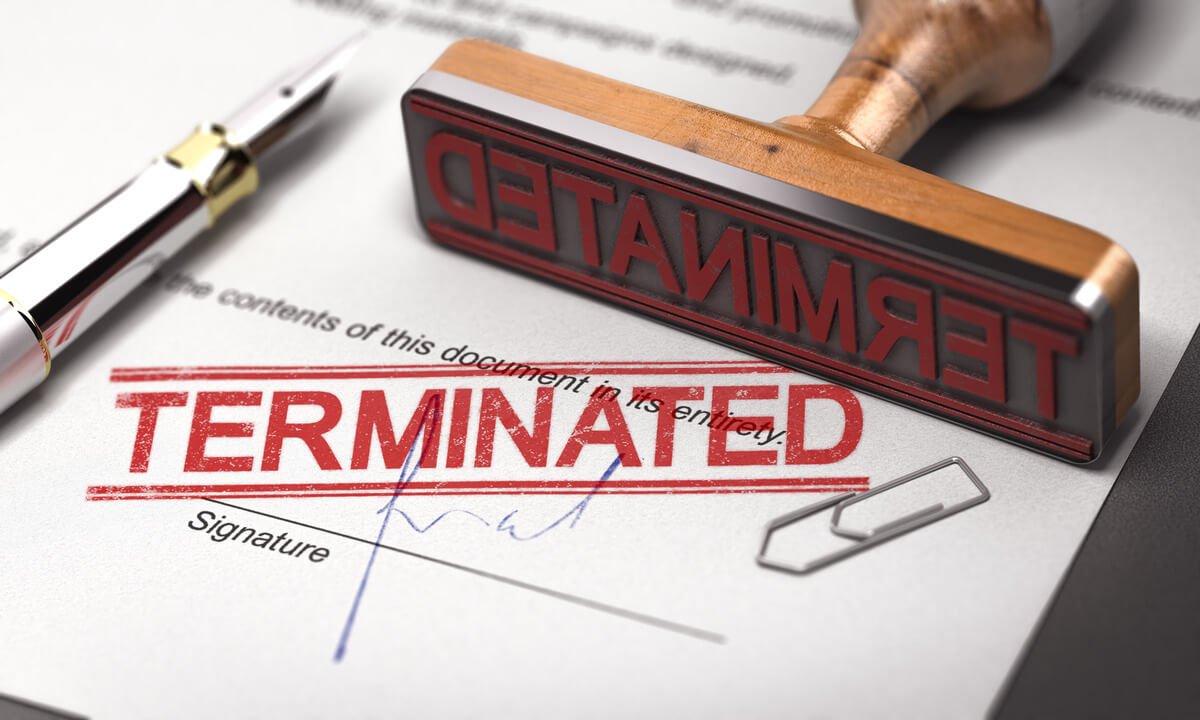
Receiving a letter of termination is a positive surprise for very few employees – and initially throws many people off course. Nevertheless, in the event of a dismissal it is important to remain calm, avoid “gross mistakes” and consistently take the necessary steps. In this article you will learn the most important “dos” and “don’ts” in the event of a dismissal.
1. Check the letter of termination
In our experience, a lot can go wrong when writing a letter of dismissal. In other words: HR departments also make mistakes, and many of these mistakes can lead to the invalidity of a termination. We show you what to look out for when writing a letter of termination:
Is the written form complied with?
You must be given notice in writing. This means that your employer must sign the letter of termination by hand. Therefore, a notice of termination by e-mail or SMS is invalid and not sufficient! A verbal notice of termination is also invalid. You have an advantage if the notice of termination is not in writing. Because then the notice of termination is not valid and you already know that your employer wants to terminate your employment. Our tip: Prepare yourself! It is best to contact a lawyer who can react quickly in an emergency. We can help you by finding a competent specialist lawyer for labour law.
Notice of termination really received (access)?
The signed letter of termination must reach you. This is often done by post or by handing it over. The following applies: There is no point in refusing to accept the personally delivered notice or not checking the letterbox for several days. This will only harm you, because the notice of termination has still been given in accordance with labour law. This means that you have legally received the notice of termination, even if you did not have it in your hand yet. After all, German courts assume that you check your letterbox once a day.
But be careful: Even if you are on holiday and cannot check the letterbox, the receipt of the termination notice is effective. It is usually your risk if the employer gives you notice while you are on holiday and you only see the notice after your holiday. If you are unlucky, the time limit for filing a complaint has also expired. Are you not going to be in your flat or house for a long time? Ask friends or neighbours to empty your letterbox.
Who may sign the termination letter?
Check who signed the termination notice. Only two different groups of people can sign your resignation. The first group includes people in the company who all know that they are authorised to dismiss employees. This could be, for example, the company owner, the managing director or the authorised signatory. However, it is also generally assumed that personnel managers are entitled to terminate employment.
The second group of persons who can in principle sign a notice of termination does not belong to this group. In that case, the notice of termination must be accompanied by an authorisation from the employer to terminate the employment contract – and this must be in the original. This means that you can reject the notice of termination if the authorisation is missing. A lawyer can help you with this!
2. Termination letter: Do not sign anything!
Important: You are not obliged to sign anything and you should not do so. Sometimes employers try to get the dismissed employee to sign a termination agreement. With this contract, the employment relationship is terminated immediately and the worker loses their claims against the employer. As a result, they may get less unemployment benefit and the employer no longer has to be afraid of an action against dismissal. It may happen that an employer builds up pressure and tries to get you to sign a termination agreement. Do not sign anything!
3. Register as a jobseeker and unemployed
Register as a jobseeker as soon as possible if you have received notice of termination. You only have three days! If you do not register as a jobseeker within three days, this can have financial disadvantages for you. For example, you may receive a block on your unemployment benefit. You must also register as unemployed on the first day of your unemployment at the latest.
Our tip: You can now register as a jobseeker and unemployed online at the employment agency!
4. File an action for protection against dismissal within three weeks!
If you have received a dismissal, you can defend yourself against it by bringing an action for unfair dismissal.
Why bring an action for unfair dismissal?
It is usually a good idea to file a dismissal protection action if you have received a dismissal. You may feel hurt after the dismissal and no longer want to work for your employer. You may already have been unhappy with your employer beforehand and want to leave as soon as possible. Nevertheless, it is usually worth taking legal action against dismissal.
You can sue for continued employment by suing for protection against dismissal. The employer has already shown that he is no longer interested in you and wants to get rid of you quickly. So there is a risk that he will lose the action for protection against dismissal and will have to continue to employ and pay you against his will. Therefore, he will be willing to pay you a certain amount for the loss of your job. Then make a settlement with the employer before the labour court. This settlement stipulates the employer’s payment and the termination of the employment relationship. The settlement ends the court case.
The amount of the severance payment depends on your negotiating skills and the risks for the employer. You can also achieve other advantages here: For example, you can delay the termination date or agree to issue a good reference.
You can limit the economic consequences of losing your job by suing for protection against dismissal. Professionals know how to “get out” as much as possible in court, so you should seek advice from a lawyer.
Termination letter: Do not miss the three-week deadline
Under no circumstances should you allow the three-week deadline for filing a complaint from the date of receipt of the notice of termination to expire. This deadline always applies, regardless of whether the dismissal is legal or not. So that the termination becomes effective! If you miss the deadline after you have received the notice of dismissal, you can no longer bring the action for dismissal (except in rare exceptional cases). So you may lose a large severance payment.







